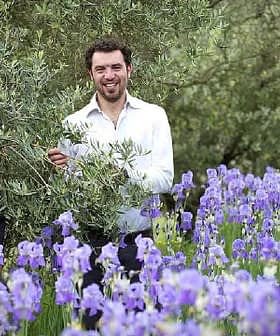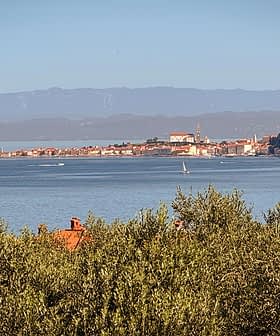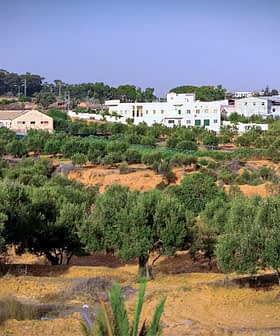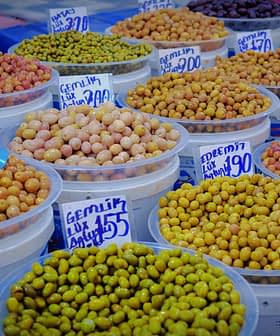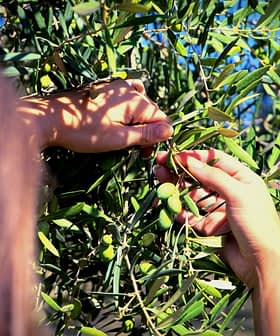The Lasting Strain on Israeli Olive Growers Six Months After Devastating Attack
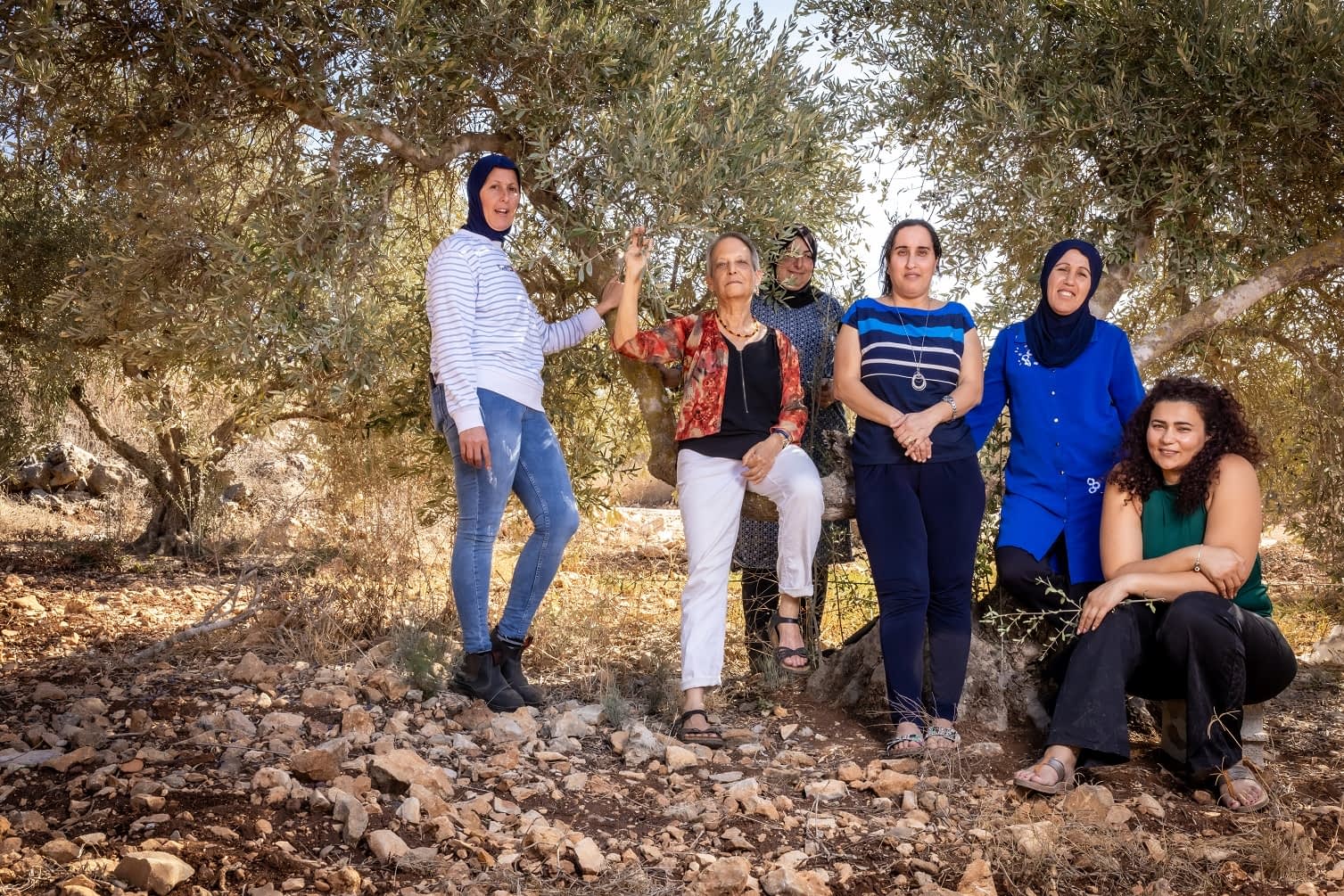
The article discusses the impact of a deadly attack by Hamas militants on Israel, particularly on olive farmers like Ido Tamir, who had to delay his harvest due to the violence. The attack led to a significant reduction in olive oil production in Israel, affecting both the emotional and economic well-being of farmers and non-profit organizations like Sindyanna of Galilee, which supports peace-building efforts between Israelis and Palestinians.
“There has been no normal life here since October 7th,” said Ido Tamir, owner of Ptora.
The olive harvest was just getting underway in southern Israel when Hamas militants crossed from Gaza at sunrise, killing 1,139 people and taking an additional 250 hostage.
Nothing will be the same as it was before. Everyone is sad; you can feel the sadness all over the country. But I need to keep going. The land and trees are not waiting.
The attack was the deadliest in Israel’s history, with many comparing its impact on society to that of the September 11, 2001, attack on the United States.
Tamir has a 40-hectare olive grove located 25 kilometers from the Gaza border. He remembers five rockets falling in his moshava – an agricultural settlement – and the sense of fear.
See Also:Olive Trees in Gaza Among Conflict’s Collateral Losses“We were supposed to start the harvest on October 8th, so for us, [the attack] was on the first day of the new harvest,” Tamir said.
Instead, the olives remained on the trees as Tamir and the rest of the country attempted to come to grips with the personal and national tragedy unfolding around them.
One of Tamir’s friends is among those who were taken back to Gaza and held hostage. Tamir still does not know what has become of him.
His farm manager is also dealing with the trauma of the attacks. He lives in Sedot, the scene of the fiercest fighting during the attack, and hid inside his house. At the same time, Hamas fighters battled local authorities and were only repelled the following day after the Israeli Defence Force arrived.
At least 70 Israeli police and civilians were killed during the battle for control of the city.
“We were in shock and afraid for one week,” Tamir said. Then we started to think about how to manage the harvest.”
Normally, he hires Palestinians from the West Bank to help with the harvest. However, the border between Israel and the West Bank closed immediately after news of the attack broke and remains closed.
Many Israeli workers did not come either, as 350,000 Israelis of all ages were called up to active duty by the Israeli Defence Force.
Additionally, many Thai guest workers, who have been a staple of Israeli society since the 1970s, evacuated the country in the aftermath of the attack and are only now beginning to return.
Given the grave situation, Tamir said it was perhaps fortunate that he was expecting a significantly reduced harvest – down 60 to 65 percent from last year – given the lack of workers available to pick the olives and transport them to a local mill.
“It helped us manage because if it had been a regular year, I’m sure we wouldn’t have been able to manage the situation,” he said.
“Many Israeli volunteers came from all over the country to help us,” he added. “It was a very special harvest.”
Volunteers, many of whom had never done any agricultural work, participated in the manual harvest despite air raid sirens indicating more rockets had been launched from Gaza.
Whenever he was not harvesting olives or in the mill, Tamir attended the funerals of friends and neighbors.
“Everyone in Israel was very shocked, so it was a relaxing way for them to escape the news,” he said.
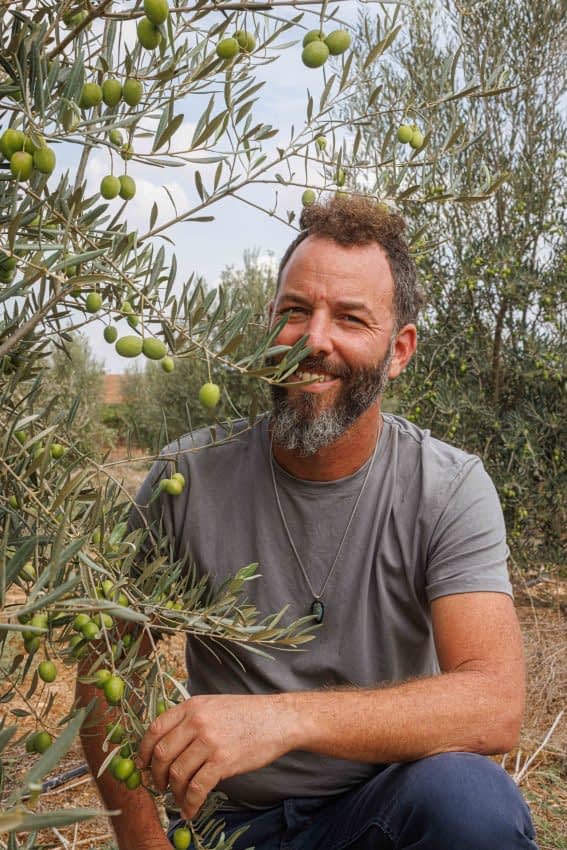
Missile attacks are not unusual in southern Israel, but Ido Tamir said the October 7th attack was unprecedented. (Photo: Ido Tamir)
Ofer Armoni, the owner of Levant Olive Oil, was among the volunteers who headed south to help with the harvest.
After completing the mechanized harvest of his 19-hectare olive grove outside of Tel Aviv, Armoni traveled to the country’s south to help other olive farmers with their harvests, including one injured by rocket fire from Gaza at the start of the conflict. “We help each other, and this is our strength,” he said.
I did not recognize my feelings… It was hard for me to acknowledge that part of my people would do such a horrible and tragic act against civilians, especially those who know what it is like to live in a continuation of the Nakba and occupation for more than 70 years.
Armoni said a significant portion of his sales are for restaurants and the food service sector. While they have started to return to normal levels, he said that the sales completely halted in the immediate aftermath of the attack.
Now, he believes the situation is slowly transitioning to the next normal. “Nothing will be like it was before the attack, but the situation is becoming quieter,” Armoni said. “We all pray every day that the hostages will come back and hope that there will soon be peace. I only want to grow olives and make olive oil.”
Six months after the attack, Tamir said there is still no sense of normalcy in Israel. “Nothing will be the same as it was before,” he said. “Everyone is sad; you can feel the sadness all over the country. But I need to keep going. The land and trees are not waiting.”
Tamir said there had been an unspoken trust among Israeli civilians and the army, especially those living near Gaza. In exchange for 2.5 years of mandatory military service after turning 18, the army would keep them safe and allow them to live “a normal life.”
“It was disappointing for Israeli people because the army wasn’t there,” Tamir said. He also believes the country’s fraught political situation is leaving Israel increasingly isolated and turning international public opinion against the traumas experienced by Israeli civilians.
Since Israel started its air campaign and ground invasion of Gaza, the Hamas-run health ministry estimates that more than 34,000 have been killed and 77,000 injured, about five percent of Gaza’s population.
International observers believe these figures will be much higher once the rubble is cleared and the missing are accounted for. The United Nations estimates that 35 percent of Gaza’s buildings have been damaged or destroyed.
On the other side of Israel, the team behind Sindyanna of Galilee, a woman-run non-profit that works to promote peace between Israelis and Palestinians, is also coming to terms with what happened six months ago.
“The Israeli population as a whole finds itself in a state of trauma, grappling with the complex dynamics of the war in Gaza,” chief executive Hadas Lahav said.
“On the one hand, there is a widespread conviction that a terror organization cannot be allowed to maintain control over Gaza,” she added. “At the same time, there is also a prevailing sense of distrust towards the government’s ability to manage the conflict effectively.”
For Nadya Giol, a Palestinian citizen of Israel and chief group facilitator at Sindyanna of Galilee, the October 7th attack unleashed a torrent of conflicting emotions.
“I received a phone call at 6:30 a.m. from a relative, a young woman living in the south of Israel, crying hysterically and saying that she does not know what to do alone in the building,” she said.
Giol tried to soothe her relative, telling her that this was another outbreak of hostilities between Israel and Gaza – since 2001, Palestinian militants have fired tens of thousands of rockets from Gaza at Israel – and everything would return to normal soon enough.
“The hours passed, and the picture began to become clearer,” she said. “I did not recognize my feelings… It was hard for me to acknowledge that part of my people would do such a horrible and tragic act against civilians, especially those who know what it is like to live in a continuation of the Nakba and occupation for more than 70 years.”
Nakba
The Nakba, or “catastrophe” in Arabic, refers to the violent displacement and dispossession of land, property and belongings of Palestinians that occurred during the establishment of the state of Israel in 1948. The term is also used to describe the ongoing occupation of Palestinian territories by Israel.
“I felt anger, pain and frustration,” Giol added. “On the one hand, toward Hamas because of the crime committed, and on the other hand, for Israel because the situation we have reached is because of the ongoing conflict.”
Giol’s anger, pain and frustration were shared by her colleagues at Sindyanna. Like many Israelis, they are dealing with the devastating emotional and economic consequences of the war.
“Our team and board have been having serious discussions on the need to downsize our expenses,” Lahav said. “We had to shut down our visitors center [which receives about 10,000 people each year] for an unknown period of time.”
Additionally, Sindyanna laid off three full-time staff members and slashed marketing expenses.
According to Adi Naali, the head of the Israeli Olive Board, the lack of workers has the most significant economic impact on producers. He estimated that 85 percent of the necessary workers were missing.
Due to the war, climatic and agronomic factors, Israel produced 11,000 tons of olive oil in the 2023/24 crop year, below the 13,500 tons anticipated by the International Olive Council in its pre-harvest estimate published in November.
Tamir said many small-scale producers left their olive trees unharvested. According to the Israeli Olive Board, olive groves in the Golan Heights and near the Gaza border remain unharvested after mandatory evacuations.
“We could not complete the picking until January 2024, a huge delay,” Lahav said. “I am sad to say that the olive oil that was produced at this time was of less quality than we used to.”
Despite their challenges, Lahav and the team at Sindyanna recognized that the situation in the West Bank has also become incredibly difficult – not to mention the ongoing humanitarian crisis unfolding in Gaza – due to the war.
The non-profit increased its purchases of Palestinian olive oil to support the community with which it has worked so closely over the years.
“Amidst this backdrop, fear and suspicion have deepened between Jews and Arabs,” Lahav said.
However, “the trust we have built [between these two communities] over the years has proven resilient even in these difficult times,” she concluded. “Our shared vision for a life marked by mutual respect and freedom continues to bind us, and we believe it will prevail.”



